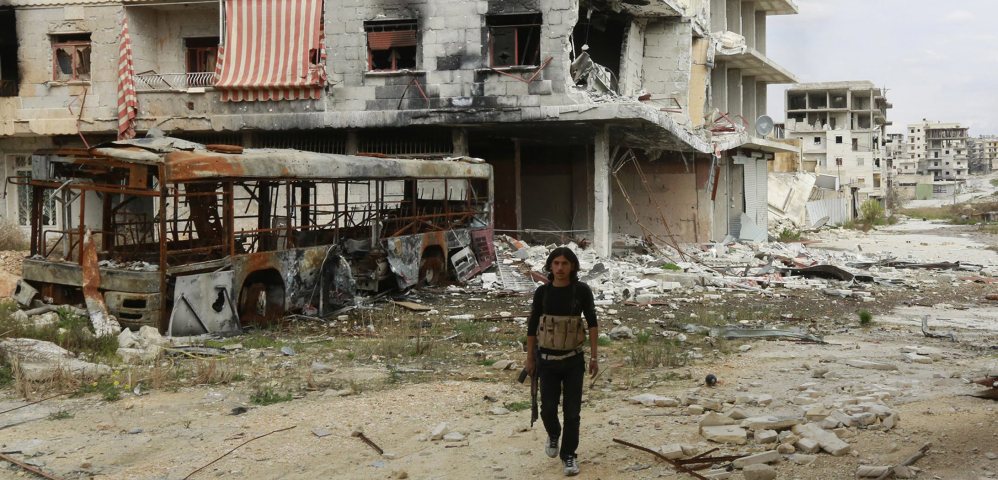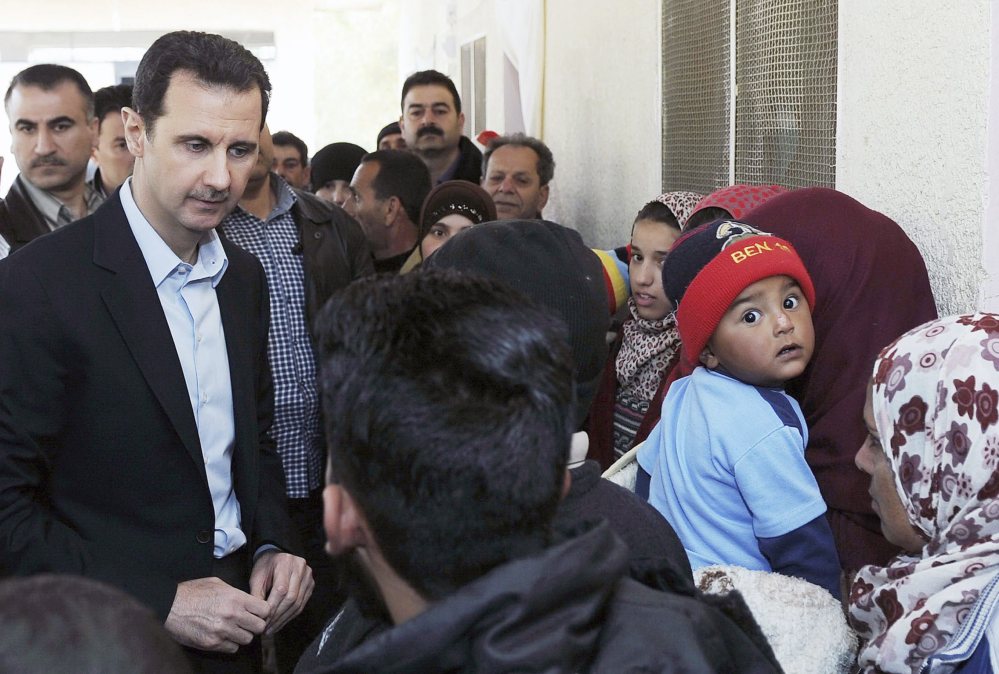Three years into the revolt against his rule, Syrian President Bashar Assad is in a stronger position than ever before to quell the rebellion against his rule by Syrians who rose up to challenge his hold on power, first with peaceful protests and later with arms.
Aided by the steadfast support of his allies and the deepening disarray of his foes, Assad is pressing ahead with plans to be re-elected to a third seven-year term this summer while sustaining intense military pressure intended to crush his opponents.
The strategy is not new, but in recent months it has started to yield tangible progress in the form of slow but steady gains on several key fronts on the battlefield that call into question long-held perceptions of a stalemate.
Most notably, the government has pushed the rebels back or squeezed them into isolated pockets in large swathes of the territory surrounding Damascus, diminishing prospects that the opposition will soon be in a position to seriously threaten the capital or topple the regime.
For those who joined the effort to unseat Assad three years ago, flush with the fervor of the Arab Spring protests sweeping the region, the realization that the rebellion is faltering is “deeply depressing,” said Abu Emad, a student activist who has watched as the government has steadily crushed the armed rebellion in his hometown of Homs, once regarded as the epicenter of the revolt.
Saturday marks the third anniversary of the initially tentative anti-government demonstrations that spiraled into civil war, and many Syrians are wondering whether the 140,000 deaths and the displacement of millions of people were worth the price, he said.
“More than ever there is no hope. Not on the ground and not politically,” Abu Emad said, using a pseudonym to protect his identity. “For the rebels to win, it will take a miracle.”
The extent of the progress has been such that Assad felt confident enough this week to travel 20 miles outside Damascus, through territory held by the rebels for much of the past two years. In the northeastern suburb of Adra, he visited displaced people, promised them aid and pledged to uphold the fight.
Meanwhile, the poorly armed and highly disorganized rebels have not launched a significant offensive or captured an important military facility since the fall of Menagh air base in northern Aleppo province in the summer.
A much-anticipated rebel offensive in southern Syria, widely reported to be imminent after the collapse of peace talks in Geneva last month, has not materialized. Nor have new supplies of weapons from foreign backers that the Syrian opposition coalition said were promised last month.
Despite some scattered sightings of Chinese-made antitank weapons that were recorded and then posted on the Internet as YouTube videos, there is no indication of any influx of new weapons sufficient to make a difference to the balance of power on the ground, said Jeffry White, defense analyst at the Washington Institute for Near East Policy.
The chances that the government will be able to restore its authority over all the far-flung parts of the country that have slipped beyond its control seem remote. But the likelihood is growing that Assad will be able to pacify enough of the country to sustain his hold on power and claim victory, White said.
“The possibility of the regime winning in a real sense is there,” he said. “It depends on a lot of factors – that the regime continues to get support from the Lebanese militia, Hezbollah and Iran, that there’s no outside intervention, and that the rebels don’t get better organized or new weaponry. But unless the rebels can change the situation on the ground in some way, the regime is going to keep grinding them down.”
Deepening rifts among the rebels have further enhanced the government’s prospects. A revolt in January by an assortment of diverse rebel groups against the al-Qaida-inspired Islamic State of Iraq and Syria (ISIS) led to widespread bloodshed across northern Syria, most of which has been under rebel control for the past two years.
The rebel landscape has since continued to fragment. The divisions have diverted resources and attention from the effort to dislodge Assad.
Send questions/comments to the editors.




Comments are no longer available on this story